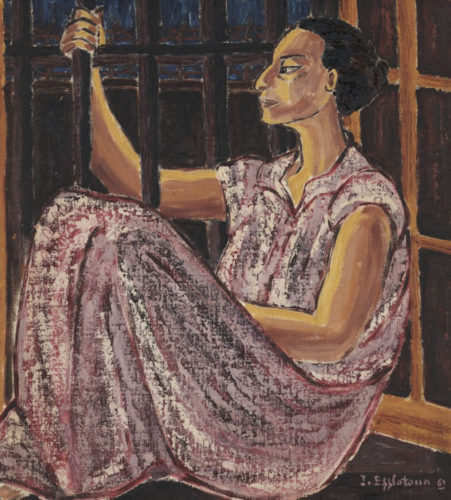Amro Ali, “Kinetic Karama: Bargaining for Dignity in the Pursuit of a New Arab Social Contract” in The Modern Arab State: A Decade of Uprisings in the Middle East and North Africa, Ed. Youssef Cherif, (Berlin: Konrad Adenauer Stiftung, 2021) pp. 41-67. PDF version

Courtesy of the Barjeel Art Foundation.
Continue reading “Kinetic Karama: Bargaining for Dignity in the Pursuit of a New Arab Social Contract”Summary: The protest cries of karama (dignity) in 2011 saw the emergence of a new subjectivity in the Arab world that birthed a new citizenship paradigm and elevated the citizenry as a compelling sovereign collective. Karama developed not only as a form of bottom-up universal humanism but also independently outside the confines of academia, religious-secular debates, and even human rights organizations. For many decades, karama had been reserved for the loftiness of the nation and liberation struggles, whereas karama for the individual meant a moral virtue that constituted an apolitical being. In 2011, however, the understanding of karama made a phenomenal leap from the moral into the political realm and thus became a political force in its own right. Karama developed into a self-contained movement, a philosophy that people yearned to develop, encapsulating a story that expands the moral imagination and asks its protagonists to imbibe the rhythm of life with a higher temporal calling. It is the citizen’s inherent worthiness and inalienable right to make the social contract.
